
Buying a home is one of the biggest financial commitments South Africans make, and the costs extend well beyond the bond repayment. Alongside monthly instalments to the bank, homeowners must budget for municipal rates, taxes, utilities, maintenance, insurance and security. Once-off expenses such as furnishings and connection fees also add to the pressure. Careful planning for these costs ensures long-term affordability, prevents financial strain and provides a stable foundation for future financial planning.
Key Takeaways
- Homeownership Costs Extend Beyond the Bond: While monthly bond repayments are the largest expense, additional costs such as rates, taxes, utilities, maintenance, insurance, and security must also be included when budgeting.
- Affordability Guidelines Matter: A practical rule is to keep housing costs within 28 to 31 percent of gross monthly income, with total expenses often equating to around one percent of the bond value plus R3 000 to R4 000 for extras.
- Planning Protects Long-Term Affordability: Deposits reduce repayments and interest, while careful budgeting for levies, furnishings, and unforeseen repairs ensures financial stability and avoids unexpected strain.
About Arcadia Finance
Get the right loan with ease through Arcadia Finance. Compare offers from 19 trusted NCR-compliant lenders, pay no application fees, and enjoy a smooth process designed around your financial needs.
The True Cost of Homeownership
Mortgage Versus Total Monthly Home Ownership
When considering monthly expenses as a homeowner, it is essential to distinguish between your mortgage repayment and the overall total cost of homeownership. The mortgage repayment typically reflects the principal and interest portions of your bond. In South Africa, a ballpark figure is around 1 % of the bond amount per month, though this may fluctuate depending on the interest rate and loan term.
However, sheer bond costs do not cover the whole picture. Owning a home also involves a range of additional expenses such as utilities, rates and taxes, maintenance, insurance, and security. These extras can significantly increase the monthly outlay. A commonly referenced rule of thumb is 1 % of the bonded amount plus an additional R3 000 to R4 000, to cover ancillary costs.
Fixed Versus Variable Costs
Fixed costs are those that remain stable month to month. In the context of homeownership, fixed expenses often include:
- Home loan repayments (if under a fixed interest rate arrangement)
- Municipal rates or sectional title levies or both
- Insurance premiums (such as buildings insurance, and where required, bond protection cover).
Conversely, variable costs fluctuate depending on usage or changing circumstances. Examples include:
- Electricity, water and refuse charges, which rise or fall depending on consumption
- Repairs and maintenance, such as replacing a geyser or servicing a garden
- Utility connection fees or special levies that are irregular.
It is also vital to consider how your interest rate type affects your mortgage repayments. If you have a fixed interest rate, your bond repayment remains the same during the fixed term. This provides budgeting certainty, but usually carries a higher starting rate in South Africa and the fixed period is limited to a maximum of five years.
With a variable interest rate, your repayments may decrease when the South African Reserve Bank lowers the repo rate, but they can also increase when rates rise. This introduces variability in your mortgage portion of the bill.

Monthly Mortgage Repayments
Importance of Bond Repayments in Your Budget
Bond repayments are usually the largest monthly cost for South African homeowners, covering both capital and interest. Most banks expect a deposit of around ten per cent, though one hundred per cent bonds are also available, especially for first-time buyers.
A deposit lowers the loan amount, reducing monthly instalments and saving interest over time. For instance, on a one million rand property over twenty years, a ten per cent deposit can reduce repayments by several hundred rand each month. Without a deposit, the repayment is higher and the total interest paid is substantially more. Saving for a deposit not only improves affordability but can also strengthen approval chances and help secure better interest rates.
Keeping Housing Costs Within a Healthy Income Ratio
Financial planners recommend that housing costs remain between twenty-eight and thirty-one per cent of gross monthly income. This measure ensures bond repayments and related expenses fit comfortably within household budgets. Using gross rather than net income creates a more consistent benchmark across borrowers.
Although not a strict rule, staying close to this threshold helps households avoid financial strain. It also provides room to cover other essentials such as utilities, insurance, and maintenance, making it a useful standard when evaluating whether a property is truly affordable.
Municipal Rates, Taxes and Utilities
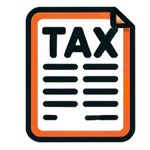
Municipal Rates and Taxes
Municipal rates and taxes are fixed charges imposed by your local municipality based on the market value of your property, whether the property is freehold or sectional‑title. In some areas such as as Johannesburg and Durban, rates are calculated using a cent‑in‑the‑rand tariff applied to assessed value. Other municipalities, Cape Town being a notable example, have adopted additional fixed charges tied to property values, which can notably increase monthly accounts for higher‑valued properties. Over the past 15 years, property rates have consistently risen faster than inflation, placing growing pressure on homeowners.
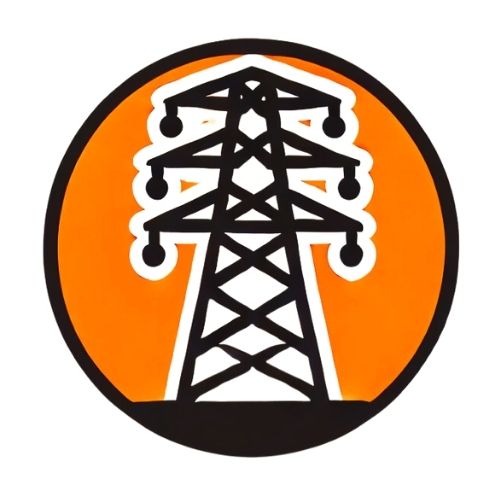
Utilities: Electricity, Water and Refuse
Utility costs generally fluctuate based on household usage. Electricity, water, and refuse charges are variable month‑to‑month and depend on consumption as well as billing system, prepaid or conventional metering. South Africa operates a free‑basic‑services policy that offers indigent households a monthly allowance of around six kilolitres of water and fifty kWh of electricity at no cost, although the actual subsidy varies by municipality and household qualification.
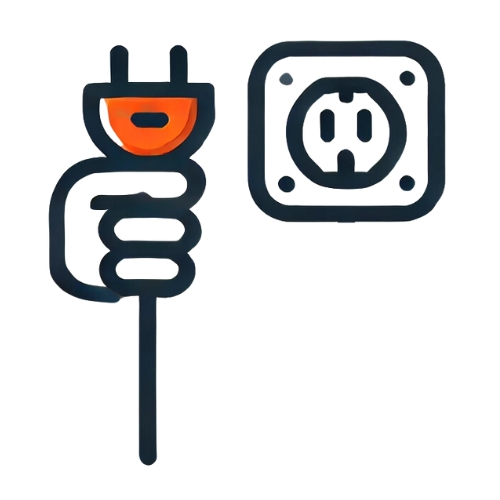
Connection Fees (Initial Setup)
One‑off connection fees are required to establish essential services such as water, electricity, and internet. These initial setup costs typically range between R1 000 and R3 000, depending on the provider and required installations.

Insurance Costs
Building Insurance
Banks in South Africa generally require homeowners to have building insurance as part of the bond agreement. This insurance protects the structural elements of a home, including the walls, roof, outbuildings and fixed fixtures, against risks such as fire, floods, storms and malicious damage. It is important to insure to full replacement value, as under‑insuring can leave homeowners and their lenders exposed if rebuilding costs exceed the insured sum. Homeowners may take their bond provider’s insurance quote or shop around with other accredited insurers to find better terms or pricing.
Contents Insurance and Bond-Protection Cover (Optional)
Contents insurance protects possessions inside the home from theft, damage or loss. Bond‑protection insurance covers bond repayments in certain life events, such as death, disability, critical illness or retrenchment, helping to safeguard your finances and bond obligations. Although neither is mandatory, they provide valuable protection for your home and household against unexpected events and are worth considering when calculating monthly costs.
Sectional-Title Levies and Special Levies
Sectional‑title owners must budget for monthly levies. These levies cover maintenance of common areas, security, building insurance for shared structures and communal utilities. In many schemes, levies start at around R1 500 per month and can rise above R10 000 in exclusive lifestyle estates. In addition to regular levies, owners should plan for special levies when significant repairs or upgrades become necessary, such as roof repairs, waterproofing or repainting.
Repairs and Maintenance
Maintaining a home requires setting aside funds for general upkeep and unforeseen repairs. A common guideline suggests allocating at least 1 per cent of the property’s value each year for maintenance, which breaks down into a monthly saving that helps cover garden upkeep, structural repairs and emergencies such as geyser replacements. Some advise budgeting between 1 and 4 per cent annually, depending on the home’s age, condition and potential for wear and tear. Establishing an emergency fund for repairs helps avoid sudden financial strain.
Security Costs
Security forms part of the peace-of-mind budget for many homeowners. Typical costs include alarm systems, electric fencing, CCTV cameras and armed response services. The level of security will vary by neighbourhood and by personal preference or property type, with those in high‑risk or gated communities often incurring higher monthly expenses. While optional, investing in security measures is often wise, particularly where crime rates are a concern.
Furnishings and Soft Furnishes
Curtains, rugs, blinds and furniture often represent start‑up costs that are overlooked when one moves into a newly purchased home. These items can quickly add up as sizes may not correspond to previous spaces, and decorating a new home requires pieces that complement both the structure and your personal taste. Soft furnishings, while sometimes seen as optional, play a crucial role in making a house feel lived‑in and comfortable.

Example Monthly Budget Breakdown
To understand how homeownership costs add up, let’s look at a realistic monthly budget for a middle-income household in South Africa. This example assumes a property valued at R1,200,000 with a home loan of R1,000,000 over 20 years at a 12% interest rate.
| Expense Category | Estimated Monthly Cost | Notes |
|---|---|---|
| Bond Repayment | R11 000 | Based on loan amount, term, and average interest rate. |
| Municipal Rates & Taxes | R1 500 | Property rates, refuse removal, sewage, and local charges. |
| Utilities (Water & Electricity) | R2 500 | Depends on household size, consumption, and load shedding solutions. |
| Insurance | R1 200 | Includes building cover and household contents. |
| Levies (if applicable) | R1 800 | For sectional title or estate living; covers security, gardens, etc. |
| Maintenance & Repairs | R1 000 | Budget for small repairs, garden services, or general upkeep. |
| Internet & Security Services | R1 000 | Fibre internet, armed response, or alarm monitoring. |
| Buffer / Emergency Savings | R1 500 | For unexpected repairs, rate hikes, or income loss. |
| Total Estimated Costs | R21 500 | Monthly homeownership budget beyond just the bond repayment. |
It is wise to adjust this estimate according to your individual circumstances. Larger bond amounts call for higher monthly allocations, older or less well-maintained properties may require more for upkeep, and lifestyle choices (such as the extent of furnishing or security measures) will also affect the final figure.
Tips for Budgeting for Your Home
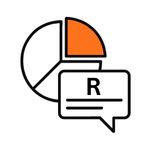
Review Your Financial Position Thoroughly
Before starting to look at homes, prospective buyers should conduct a detailed review of their monthly earnings, regular expenses, and any outstanding debts.
Understanding your current financial position is crucial to setting a sensible budget. It is also worth considering how future changes such as a job shift, growing your family, or unexpected costs might affect your finances.

Work Out Your Debt-to-Income Ratio
Most lenders assess your ability to repay a home loan by examining your debt-to-income ratio. This figure is calculated by dividing your total monthly debt payments by your gross monthly income. A lower ratio reflects better financial health and improves the likelihood of being approved for a home loan on favourable terms.
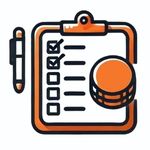
Set a Practical Budget Based on Income
One widely accepted rule is to allocate no more than 28 to 31 percent of your gross monthly income toward housing-related costs. This includes your bond repayment, property taxes, and insurance premiums.
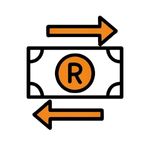
Include the Deposit and Transfer Costs
While many believe that a 20 percent deposit is standard, some lenders may approve lower deposits depending on your financial standing.
Work out a reasonable deposit amount based on your savings and income. Also, account for once-off expenses such as legal fees, bond registration, and the transfer duty to avoid last-minute surprises.
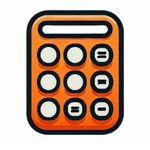
Be Clear About Mortgage Affordability
Home loan affordability involves more than the price of the property. Lenders will consider your credit rating, deposit amount, and debt-to-income ratio when making a decision.
Mortgage calculators can be useful for estimating repayments under various loan terms. This allows you to test different interest rates and loan amounts to see how they fit within your monthly budget.
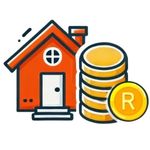
Apply for a Home Loan Pre-Approval
Securing pre-approval gives you a clear indication of the loan size you qualify for and what price range to consider when shopping for a home.
This involves a lender reviewing your financial documentation and conditionally approving a loan amount.
Pre-approval can strengthen your position as a serious buyer while also streamlining the loan process once you find a suitable property.

Think About Your Lifestyle and Long-Term Plans
It is worth thinking about broader lifestyle factors such as local cost of living, potential home maintenance needs, and possible family changes in the coming years.
This will help you select a property that not only fits your current needs but also remains suitable and affordable as your situation evolves.
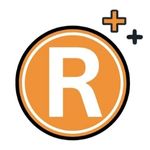
Account for Ongoing Property Costs
Beyond bond repayments, property ownership includes many recurring costs. These may include rates and taxes, body corporate or homeowners association fees, general maintenance, and utilities.
Factoring in these running costs is essential to ensure your monthly budget remains viable over the years ahead.

Speak to Real Estate and Mortgage Experts
Qualified estate agents and mortgage consultants can assist with understanding regional property trends, negotiating purchase terms, and navigating the administrative steps involved in home buying.
Their guidance can help you make more informed financial decisions and avoid common errors during the purchase process.
Conclusion
Budgeting for homeownership in South Africa requires more than calculating a monthly bond repayment. Fixed expenses such as rates, levies and insurance, combined with variable costs including utilities, maintenance and security, can add significantly to the total outlay. Using practical guidelines such as keeping housing costs within 28 to 31 percent of gross income and setting aside around one percent of the property’s value for upkeep provides a useful framework. By planning for both predictable and unforeseen costs, homeowners can maintain financial stability and enjoy the long-term benefits of property ownership without unnecessary strain.
Frequently Asked Questions
Most financial experts recommend allocating between 28 and 31 percent of your gross monthly income to cover bond repayments and other housing-related expenses.
While many banks in South Africa approve 100 percent home loans, placing a deposit, commonly 10 percent, reduces the bond amount, lowers monthly repayments, and can help secure a better interest rate.
Homeowners need to budget for municipal rates, utilities, insurance, security, sectional-title levies where applicable, and general maintenance. These costs can add several thousand rand to the monthly budget.
A general rule is to allocate around 1 percent of the property’s value each year for maintenance. For example, on a property worth R1 million, it is sensible to save about R10 000 annually, broken down monthly.
Levies cover the upkeep of shared facilities, building insurance, and security within complexes. In premium estates with extensive facilities, levies can exceed R10 000 per month, while smaller developments usually have lower charges.
Fast, uncomplicated, and trustworthy loan comparisons
At Arcadia Finance, you can compare loan offers from multiple lenders with no obligation and free of charge. Get a clear overview of your options and choose the best deal for you.
Fill out our form today to easily compare interest rates from 19 banks and find the right loan for you.


